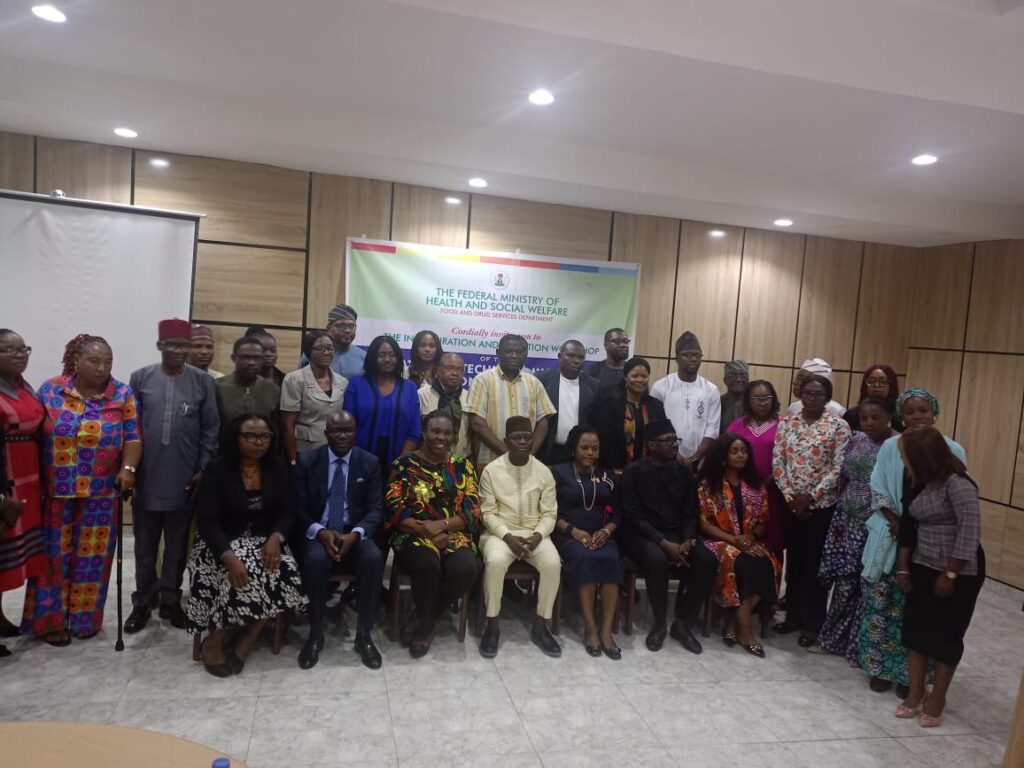The Federal Government has inaugurated a National Technical Working Group (NTWG) on Front-of-Pack Labelling (FOPL) to help Nigerians make healthier food choices by clearly identifying the nutritional content of food products before purchase.
This initiative comes amid growing concern over the increasing burden of preventable diseases, particularly non-communicable diseases (NCDs) such as hypertension, diabetes, and cardiovascular illnesses linked to excessive intake of salt, sugar, and trans fats.
Speaking during the inauguration in Abuja on Wednesday, the Permanent Secretary of the Federal Ministry of Health and Social Welfare, Daju Kachollom, emphasized the need for clear and accessible nutritional information. Represented by her Senior Technical Adviser, Dr. Dogara Okara, she explained that simplified labelling on the front of food packs would enable Nigerians to make informed decisions based on health status, age, and dietary needs. She stressed that by displaying clear symbols, colours, and text on food packages, consumers across the country would be better equipped to choose what is suitable for both adults and children.
Kachollom reaffirmed the federal government’s commitment to supporting and implementing the group’s recommendations. She urged members of the NTWG, drawn from the World Health Organization (WHO), regulatory bodies, academic institutions, civil society organisations, and non-governmental organisations, to develop solutions that resonate from urban centres to remote villages.
The group has been tasked with formulating national FOPL guidelines that reflect Nigeria’s nutritional needs and policy frameworks. They are expected to assess global models, validate nutritional profiling systems, align proposed standards with existing regulations, and develop effective public education strategies to guide implementation. The NTWG will also consult stakeholders, evaluate pilot phases, and recommend regulatory and accountability measures.
Technical Officer on Nutrition at the WHO Nigeria office, Dr. Pindar Wakawa, expressed concern about the health risks associated with consuming unhealthy food and pledged WHO’s technical support. He explained that front-of-pack warnings are one of WHO’s recommended strategies for reducing the intake of sodium, sugar, and saturated fats, all of which contribute significantly to obesity and other NCDs. According to him, the widespread availability, affordability, and marketing of processed foods with high sugar and salt content have worsened health outcomes.
Dr. Wakawa described the labelling initiative as a simple and effective tool that can help reduce the health burden by influencing purchasing behaviour. He stressed the need for awareness and collaboration among all sectors to align efforts and build capacity for policy advocacy and disease prevention.
Director and National Coordinator of the Food Safety and Quality Programme at the ministry, Mr. John Atanda, noted that the rise in cardiovascular diseases underscores the urgency of the FOPL strategy. He said many Nigerians fail to read nutritional information on food packs, and the front-of-pack labels would simplify this process by providing immediate visual cues about potentially harmful contents like sodium and trans fats. He noted that the ministry had already developed national guidelines on sodium and trans fat reduction and said FOPL would complement these by encouraging healthier eating habits.
Atanda also stressed that Nigeria’s labelling approach would be tailored to its specific dietary patterns and levels of health literacy rather than copied wholesale from other countries. He said the new labelling system would help consumers make ethical and timely decisions that support their health and well-being.
The inauguration of the NTWG marks a significant step toward strengthening Nigeria’s public health framework by empowering consumers through transparent and accessible nutritional information.















